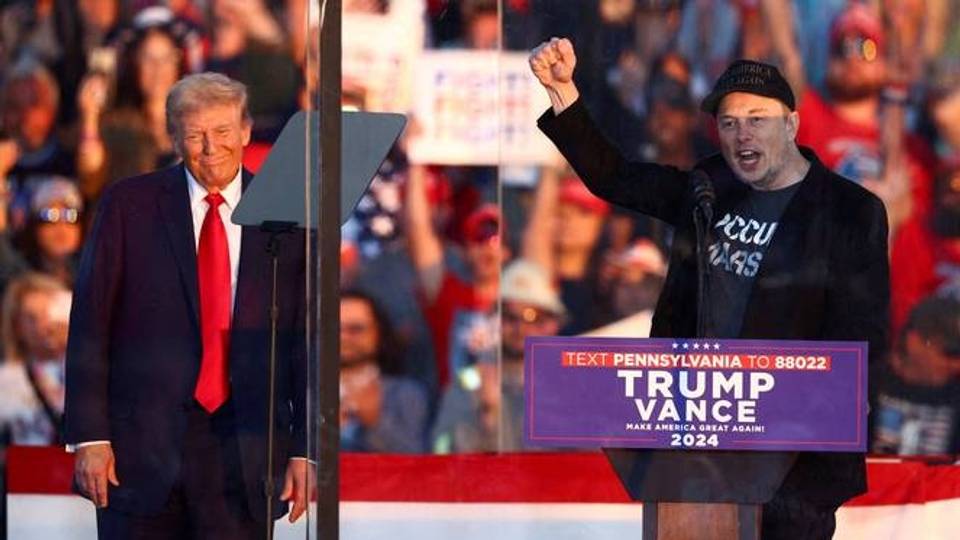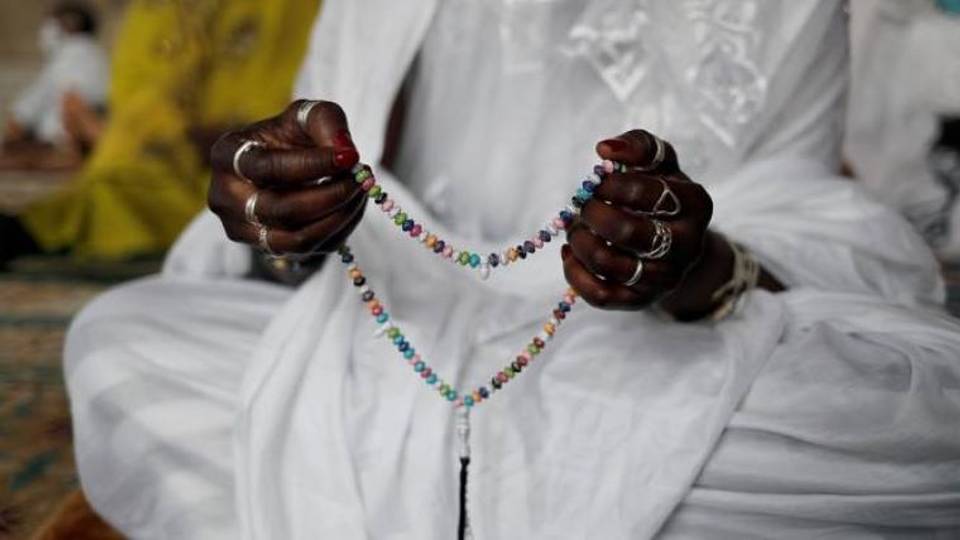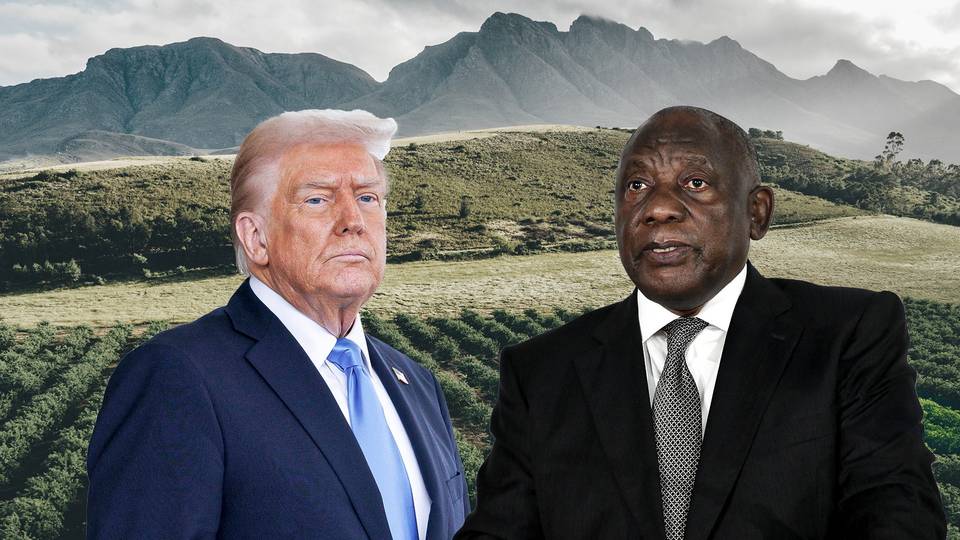Sport
Dollar
38,1588
0.3 %Euro
43,6101
1.61 %Gram Gold
3.958,7400
2.25 %Quarter Gold
6.529,2600
2.67 %Silver
39,4700
3.6 %The growing popularity of key figures like Elon Musk and Joe Rogan could have swayed voters, showing the influence of conservative on the US political landscape.

By Todd Belt
When one looks at the difference in news coverage between mainstream and conservative media in the United States, it is easy to see why so few Americans can agree even on basic facts.
Conservative media is rife with allegations and speculation, such as the notion that the 2020 election was stolen by Democrats and that illegal immigrants disproportionately commit violent crime.
How did it get this way, and did this right-wing media ecosystem have an impact on the 2024 presidential election?
Prior to the 1980s, most Americans got their news from the "Big 3" television networks: ABC, CBS and NBC. There was little difference among the three in terms of any sort of partisan slant, as all three followed strict journalistic standards in the interest of maintaining credibility.
But then three things happened, leading us to today's fragmented and partisan media landscape.
In the 1980s, the big three networks decided that they would not continue funding their news programs with revenue from entertainment, which meant the news had to generate profit to continue operating.
Practically, this meant that news programs switched to a more entertaining format (often called the "hook and hold" approach), including a "horse race" style of coverage of elections that led to less examination of issues and policies.
The second development, 24-hour cable news stations, only furthered this trend as stations looked to retain audiences throughout the day and night.
Thirdly, the demise of the Fairness Doctrine (which required the airing of differing viewpoints in coverage of political issues) in the late 1980s facilitated less balanced coverage of politics.
The rise of Fox News
These developments fostered the rise of Fox News and other right-wing news outlets, which have continued to evolve and propagate into the right-wing media ecosphere we have today.
Fox adopted the slogan "fair and balanced," but the views it promoted were decidedly conservative. Over time, Fox became increasingly conservative, and was frequently described as a mouthpiece for the Republican party.

The movement from partisan slant to spreading outright falsehoods coincided with Donald Trump's takeover of the Republican party in 2016.
During Trump's presidency, his advisor Kellyanne Conway described the administration as having its own "alternative facts" – which Fox was more than happy to amplify and defend as legitimate.
As Trump was taking over the Republican party, other new and evolving media outlets proliferated. Research by Yochai Benkler and his colleagues demonstrated how the website Breitbart became the key hub for the dissemination of information across nearly all right-wing media platforms during the 2016 election campaign.
2024 election
These platforms began to span a vast array of media, from print journalism (such as The Epoch Times), to blogs, to podcasts. Without any sort of editorial filter, these sites began to traffic in what critics have denounced as conspiracy theories.
The 2024 election was pivotal for US politics and whether Trump would be re-embraced or finally ostracised from American politics.
Fox News was even forced to settle a lawsuit for $787 million dollars for propagating falsehoods about machines manufactured by Dominion Voting Systems changing votes during the 2020 election (supporting Trump's claims about a "rigged" election).
The 2024 election was pivotal for US politics and whether Trump would be re-embraced or finally ostracised from American politics. Both sides felt that the outcome was critical to their belief in preserving democracy.
When Trump asserted that Haitian immigrants in Springfield, Ohio were "eating cats and dogs," right-wing outlets not only repeated the claim but attempted to validate it. So, did voters' consumption of right-wing media impact their votes in 2024?
We have some data that indicates it may have.
The GW Politics Poll, which I direct with colleagues at George Washington University, provides some insights about particular political figures and how people's opinions about them are related to their vote choice.
Two prominent voices in right-wing media – both on their own platforms and repeated throughout the right-wing media universe - are Elon Musk and Joe Rogan. Elon Musk, famous for owning the Tesla electric vehicle company and SpaceX, purchased Twitter in 2022.
The platform reinstated Trump's account, which was banned after the January 6, 2021 US Capitol Riots, and implemented a very pro-free speech policy that elevated right-wing discourse.
For Elon Musk, 85 percent of people who had a very or somewhat favourable opinion of him voted for Trump, whereas 91 percent of those who had a very or somewhat unfavourable opinion of him did not vote for Trump.
When it came to Joe Rogan, 76 percent of people who had a very or somewhat favourable opinion of him voted for Trump, and 78 percent of those who had a very or somewhat unfavourable opinion of him did not vote for Trump.
Additionally, people who had more favourable opinions of Musk and Rogan were more likely to think that Donald Trump was the rightful winner of the 2020 presidential election.
While this data is not definitive about the impact of these shows on vote choice, they do indicate that people who like these individuals, and presumably would be more likely to pay attention to their media outlets and messages, were significantly more likely to vote for Trump.
Different realities
Right-wing media shows provide a rationale for people to believe what they want. More and more, however, these news outlets have engaged in proffering outright falsehoods, much to the benefit of Donald Trump.
So for the foreseeable future, the rightward tilt of the media landscape looks likely to continue.
Does it matter to voters that they are consuming lies? Salena Zito, who was covering Trump in 2016 for The Atlantic, explained that: "the press takes him literally, but not seriously; his supporters take him seriously, but not literally." So, Trump's words are not problematic for his supporters.
The problem with the rising influence of right-wing media in US politics does not look likely to improve during a second Trump term. Mainstream media outlets such as The Washington Post and The Los Angeles Times decided not to endorse a candidate in the election, much to the chagrin of their editorial boards that supported Harris.
Many have speculated that this decision was to avoid angering Trump, for fear of a loss of media access and perhaps business contracts and other interests their billionaire owners had with the US government.
Furthermore, Trump has promised to run an administration that will curtail media outlets he does not find favourable - even referring to such media as the "enemy camp" in his victory speech last week. So for the foreseeable future, the rightward tilt of the media landscape looks likely to continue.
The author, Todd Belt is a professor and the director of the Political Management Master's Program at the George Washington University. He is the co-author of four books, including The Presidency and Domestic Policy (3rd ed.) with Michael Genovese and the late William Lammers.
Disclaimer: The views expressed by the author do not necessarily reflect the opinions, viewpoints and editorial policies of TRT Afrika.
➤ Click here to follow our WhatsApp channel for more stories.
Comments
No comments Yet




















Comment